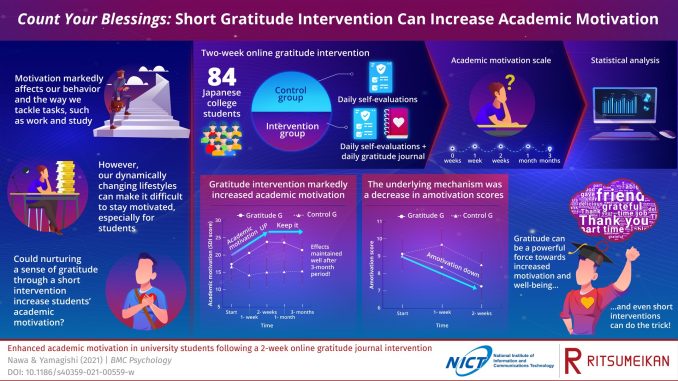
Gratitude and academic motivation may seem like distant concepts at first glance, but their connection runs deeper than most realize. In the realm of education, motivation is often framed in terms of goals, discipline, and performance. Yet, beneath the surface of sustained effort and achievement lies a psychological foundation that influences how students perceive their challenges, engage with their work, and persist through setbacks. Gratitude, as a mindset and practice, plays a subtle yet powerful role in shaping that foundation. It fosters perspective, builds resilience, and enhances emotional well-being—all of which contribute directly to a student’s ability to stay motivated throughout their academic journey.
At its core, gratitude shifts attention from what is lacking to what is present. In academic settings, where pressure and comparison are common, this shift can be transformative. Students frequently measure themselves against peers, worry about grades, and fixate on future outcomes. While ambition is healthy, it can also breed anxiety and self-doubt. Gratitude interrupts that cycle by encouraging reflection on what is going well—supportive mentors, access to resources, personal growth, or even the opportunity to learn. This reframing doesn’t eliminate challenges, but it softens their impact. A student who feels grateful for the chance to study a subject they care about is more likely to approach their work with enthusiasm rather than dread.
Gratitude also strengthens relationships, which are a key driver of academic motivation. When students feel connected to their teachers, classmates, and support networks, they are more likely to engage, collaborate, and seek help when needed. Expressing appreciation—whether for a helpful comment, a shared resource, or a moment of encouragement—reinforces those connections. It creates a positive feedback loop where kindness and support are reciprocated, building a sense of belonging. In business, strong relationships are known to boost performance and morale, and the same holds true in education. A student who feels seen and valued is more likely to invest effort and take ownership of their learning.
Moreover, gratitude cultivates resilience. Academic life is filled with setbacks—missed deadlines, difficult exams, and unexpected challenges. Students who practice gratitude are better equipped to navigate these moments without losing motivation. They’re able to step back, acknowledge what remains intact, and find meaning in the struggle. This perspective doesn’t minimize the difficulty, but it prevents discouragement from becoming defeat. For example, a student who fails a test might feel frustrated, but if they can also recognize the support of a teacher willing to offer extra help or the lessons learned through the experience, they’re more likely to bounce back and try again. Gratitude helps transform obstacles into opportunities for growth.
There’s also a neurological component to consider. Research in positive psychology suggests that gratitude activates brain regions associated with reward and motivation. When individuals reflect on what they’re thankful for, they experience increased dopamine levels, which can enhance focus and drive. In academic contexts, this means that gratitude isn’t just a feel-good emotion—it’s a cognitive tool that can support sustained effort. A student who begins their day by acknowledging what they appreciate—whether it’s a quiet study space, a recent breakthrough in understanding, or encouragement from a peer—may find themselves more energized and ready to tackle their tasks.
Gratitude can also help students maintain long-term perspective. Academic motivation often wanes when the immediate workload feels disconnected from future goals. Gratitude bridges that gap by reminding students of the broader context—the privilege of education, the doors it can open, and the personal growth it fosters. This sense of purpose reinforces commitment. A student studying late into the night might feel exhausted, but if they reflect on how their efforts contribute to a larger aspiration—such as becoming a skilled professional or making a meaningful impact—they’re more likely to persevere. Gratitude anchors motivation in meaning, making it more durable and less dependent on short-term rewards.
Importantly, gratitude is not a passive state—it’s a practice. It requires intentional reflection and expression. In academic environments, this might take the form of journaling, sharing appreciation with peers, or simply pausing to acknowledge progress. These small acts accumulate, shaping mindset and behavior over time. In business, leaders often cultivate gratitude to enhance team culture and performance. Similarly, educators and students can foster gratitude to create environments that support learning and motivation. When gratitude becomes part of the academic culture, it elevates not just individual performance but collective engagement.
The link between gratitude and academic motivation is not about ignoring challenges or forcing positivity. It’s about cultivating a mindset that recognizes value, builds connection, and sustains effort. In a world where academic success is often measured by metrics and outcomes, gratitude offers a deeper, more human dimension. It reminds students that learning is not just a task—it’s a privilege, a process, and a path to growth. When students embrace gratitude, they don’t just perform better—they feel better. And that emotional foundation is what allows motivation to flourish, even in the face of difficulty. Gratitude doesn’t replace hard work—it enhances it, making the journey more meaningful and the destination more rewarding.